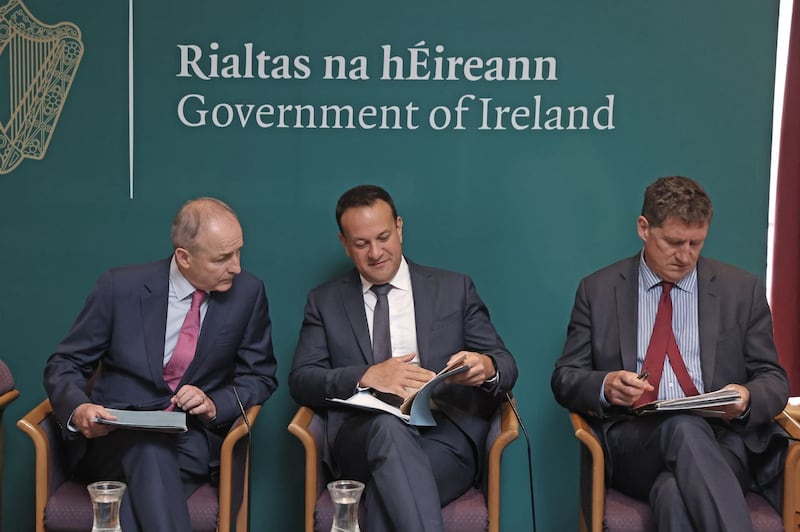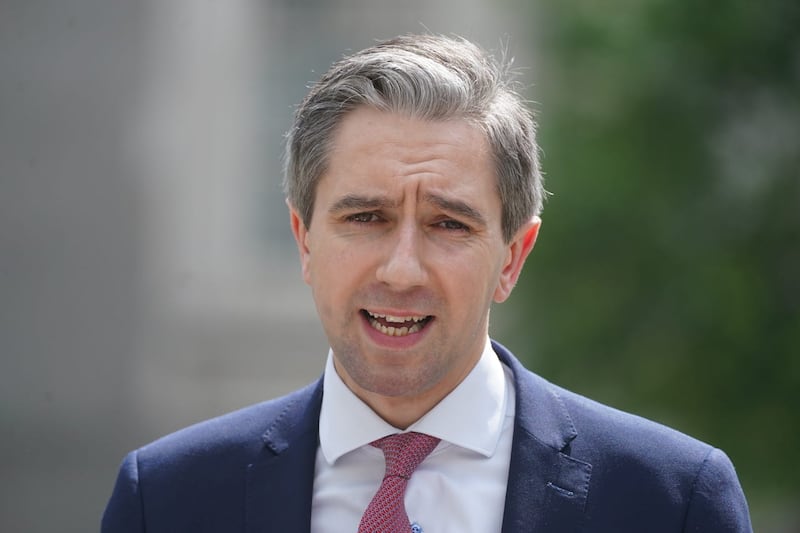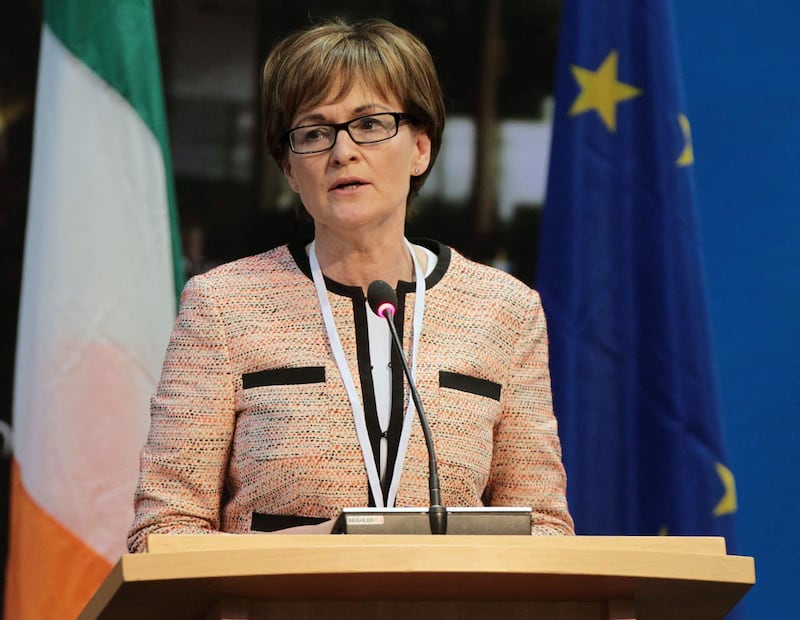Fine Gael put a spotlight on farming and justice issues and rounded on opinion-poll leaders Sinn Fein as the Irish political system ramps up for an “election year”.
Taoiseach and Fine Gael leader Leo Varadkar said that after no elections for “a number of years”, Ireland will be in a “unique” position of having a series of ballots over a short period of time.
Mr Varadkar said his party is “always looking out for middle Ireland”, and that the price of a left-wing government in Ireland would be worth 6,000 euro a year in tax income changes.

He said that increasing the threshold by which workers pay the highest rate of tax, at 40%, was “fought tooth and nail” by opposition parties including Sinn Fein.
He was speaking at a Fine Gael special conference in Maynooth, Co Kildare attended by hundreds of party members.
Food, farming and rural communities were the themes the party highlighted as it prepares for an Ard Fheis in April 2024 and the local council and European Parliament elections in June.
There is strong speculation that a general election could also be held towards the end of 2024, ahead of the Fine Gael-Fianna Fail-Green Party coalition expiring in the spring of 2025.
Asked about a possible date for a general election, Mr Varadkar said: “Sometimes elections happen on you, and sometimes you get to call them.”
He said he had not had any “detailed discussions” with Fianna Fail leader and Tanaiste Micheal Martin, nor the Green Party leader Transport Minister Eamon Ryan about when an election would be held.
Mr Varadkar said the Government was spending “99% of our time” on the cost-of-living crisis, taming inflation, building homes and keeping the economy strong.

Mr Varadkar’s party has been in government for more than 10 years, and the Dublin West TD is in his second term as Taoiseach as part of a coalition agreement with Civil War-era rivals Fianna Fail.
At the conference, justice also emerged as a common topic of concern from party members, with Justice Minister Helen McEntee asked several questions about safety on Ireland’s streets and tougher sentences.
Mr Varadkar had told reporters earlier that Ireland would have to increase prison capacity if it was to make Ireland’s streets safer.
Further and Higher Education Minister Simon Harris received a standing ovation from the floor after a speech in which he criticised Sinn Fein.
“This is a political party that is not yet ready and never will be ready to take a lecture from Sinn Fein on gardai (and criminal justice matters),” he said to applause.
“For those who keep on writing articles about this party being tired, or too long in government: we’ve never been more energised.
“The populists are at the gates of government in this country and we are not going to let them in.”
Earlier, Mr Varadkar told reporters: “2024 is an election year, we’re going to have local elections, we’re going to have European elections and we’re going to have an election for the Limerick mayor. So that’s actually our focus.

“I don’t know when the date of next election is, that hasn’t been decided yet, but it will certainly be no later than March 2025, and there’ll be presidential election as well in 2025.”
He said the party had began selecting candidates for the local elections due to be held in June.
“We’ve almost all our candidates now selected for local elections – I think we’ve got 70% – so we’ll have them pretty much all done by Christmas.
“Just under 90% of our councillors running for re-election – and then a huge number of really interesting new candidates, young, old, male, female, some really impressive people who, I think quite frankly, are future TDs and senators if they can get over the first hurdle of getting elected to the council next June.
“And then of course, after that we will focus on plans for the general election, but it’s the Europeans and locals that come first.”
Ireland’s EU Commissioner Mairead McGuinness, who was standing next to Mr Varadkar as he spoke to the media, was asked whether she intended to run for the Irish presidency in 2025.
“I’ve said very publicly that I am willing to serve again, but that’s a decision of government, and beyond that, who knows.”
Addressing the theme of the conference, Enterprise Minister Simon Coveney said that no one who is well informed thinks that rural Ireland is in decline.






